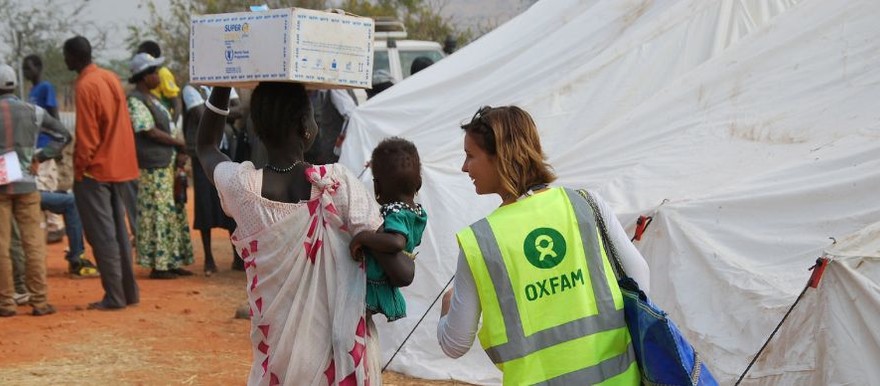Nyabil Riel, age 23, was living in the South Sudanese town Bor with her two children when violence broke out in the capital last December and very soon spread to her town.
She was part of a minority ethnic group in the Bor area, but she crossed the Nile River to safety together with tens of thousands of the majority Dinka. She describes how the kindness of a stranger helped her escape to safety.
Nyabil Riel: ‘I was suddenly alone in the bush with my two children’
On 16th December 2013, my neighbour, Mabior Anyieth, a Dinka, came to my house and shouted at me saying, ‘Please, get up let’s go.’ He did not have to ask where I was from, he knew I was a Nuer. I lived in Acdier, in Bor, and most of my neighbours and friends were Dinka. There were not many people from my Nuer tribe in my neighbourhood.
My neighbours and I all ran together. We didn’t know what was happening but knew that we had to run, hide and stay safe. When we got to Payueng, everybody hid in their own bush. We were there for eight days. Mabior and I helped each other while there – there was no food or water so we had to find ways to survive.
By the eighth day, most of the people we were hiding with had left for Mingkamen (across the Nile). Mabior too left when he found the means. I could not yet leave because it cost 100 South Sudanese pounds to cross, which I could not afford. I was suddenly alone in the bush with my two children.
I was walking along the river trying to get some help. I knew I had to cross to the other side to keep my family safe. I then came across a man called Garang Riak. I don’t know why I approached him but I did. What could I lose from asking for some help?
‘I have no money and need to get to the other side. I have been left here alone with my children. Please help me with some money to cross and I will give it back to you when all of this is over,’ I said.
To my surprise, Garang reached into his pocket and gave me enough money to cross to Mingkamen.
‘You don’t have to return the money I’m giving you now,’ he said. ‘Gunshots don’t know the difference between a Dinka and Nuer person. They kill whatever is in their path. You’re alive and so is your family. Cross to the other side and settle this debt when all this is over and you are able to.’
All I said was thank you because I was overwhelmed and tired.
We got on the boat and crossed to safety at Mingkamen. I found the nearest available tree and settled there with my family. Everyone here knows that I am a Nuer woman. We all fled the same violence, even though they are Dinka. No one has said anything bad to me or looked at me the wrong way. I make tea to sell it and people drink it regardless of where I’m from. We’re all here under the same circumstances and have to stick together to survive.
To those people fighting, there is a difference between the Dinka and the Nuer. To normal people like me, there is no difference. I hope one day everyone feels the same.
This text is part of a collection of personal testimonies published by the organization Oxfam, and is reproduced here as part of a series of survivor accounts to be published by Radio Tamazuj. If you or someone you know has a story to tell, please contact us.
File photo: An Oxfam aid worker helps a woman carry home newly distributed relief supplies at the ‘UN House’ displaced camp in Juba, 20 January 2014 (Anita Kattakhuzy/Oxfam)
Related: Stories of hope and survival: Makuey Chol Bol




